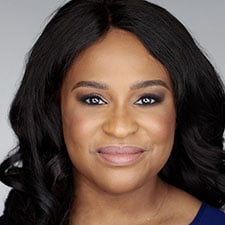Medical school is a challenging, humbling and rewarding experience for physicians in training. The volume of information and pace of expected growth is unlike any other educational experience a student has undergone. To meet the expectations and manage the demands of training, medical students can, at times, overlook one of the most valuable resources at their disposal: Their peers.
Bukky Akingbola, DO, is a second-year ob-gyn resident at the University of Minnesota. Less than 2 years removed from her medical school training, she offered insight on the value of peer relationships for medical students and how she might have approached them differently. Here are some key take-home points that could be of use to current medical students.
Peers can guide your study
“I did not come from a background where I had a parent or sibling or relative in medical school or practicing medicine,” said Dr. Akingbola an AMA member who attended medical school at Lincoln Memorial University. “It’s often talked about that in the medical realm there are a number of people who go into medical school and they're at a higher socioeconomic status or they have at least one or more family members in medicine. And that was not me.
“I really had to rely on my friends when it came to finding out about helpful resources that med students use. I had never heard of things like Sketchy [medical] or Anki [flashcards]. It wasn't until one of my friends was literally like, ‘Hey, we need we should probably Sketchy for this class,’ that I found out about it.”
Learn how the power of medical student voices can move medicine.
Other students aren’t your competition
“I went into med school thinking that it was going to be super competitive,and that it was going to be every person for themselves,” she said. “So I went into medical school, with a little bit of a guard up. I think I was somewhat self-conscious because I didn't have anyone at home to ask for help. I thought I was going to have to make my own path and figure it out all on my own. And that was absolutely was not the case in my experience.
“I don't know that I could have gotten through med school if that were the case, and if I didn't have friends or people I could rely on,” Dr. Akingbola added. “My friends, of course, were good for more than just resources. They were really there for a lot of the emotional and social support that I didn't know that I needed.”
Shared experiences are valuable
While a mother’s loving ear is irreplaceable, “being able to talk to people who really, truly can relate when I'm talking about how hard it is and how much I’m studying, how little I’m sleeping—being able to talk to people and have people there to really understand and offer support was very important as well,” Dr. Akingbola said. “And that was not something I thought I would have going into medical school at all.”
Peers help you decompress
“What was nice about my friends in med school was not only could they relate to my life because they were going through it as well, but after tests we would always go out and do something fun,” Dr. Akingbola said. “One of my good friends and I would always go to like a nice restaurant after a test, no matter how we did. Good or bad, we were getting a nice meal at the end of it.
“At that meal we would give ourselves 40 minutes to talk about school, to talk about the test, to talk about whatever it is related to medical school. And then after that, we're like—OK, we're not going to talk about medical school. We're going to talk about other things. That was really nice because ... it allowed us the opportunity to really vent.”
Find out why physician burnout’s not about you—it’s about the broken health system.
Seek out your crew
“I wish I had established a study group and my core friend group sooner,” Dr. Akingbola said. “Most of my first year, I took the path of going at it alone. I don't know why I was so committed to that because I think I probably could have more success if I had maybe done that sooner.
“Once I had a core group, I also wish I was more vulnerable with them earlier on. For me, it can take a little bit to really lean in and trust people. Once I started to do that and I started to be very honest about my feelings, such as feeling lonely at times, or feeling inadequate, I was very surprised to find out how many people felt the exact same way. And that was really validating in a lot of ways.
You can’t be everything to everyone
“When you start med school, there's—sort of—an underlying pressure to join a bunch of clubs or try to get on every executive board of directors. Not only because it helps you meet people, but it also helps your residency application. Now being a resident and interviewing people for a residency, I can see that you don’t have to be that person,” Dr. Akingbola said.
“There's lots of different types of personalities in medicine, and some people are those social butterflies. But you can definitely find your way and find a lot of success in medicine without necessarily being the person who's at every networking event or always reaching out. Now, don't get me wrong: I do think that there is a big component of networking as it relates to medicine, particularly if you're going into a really niche field or a field that's maybe smaller field, but it’s not always necessary.”





